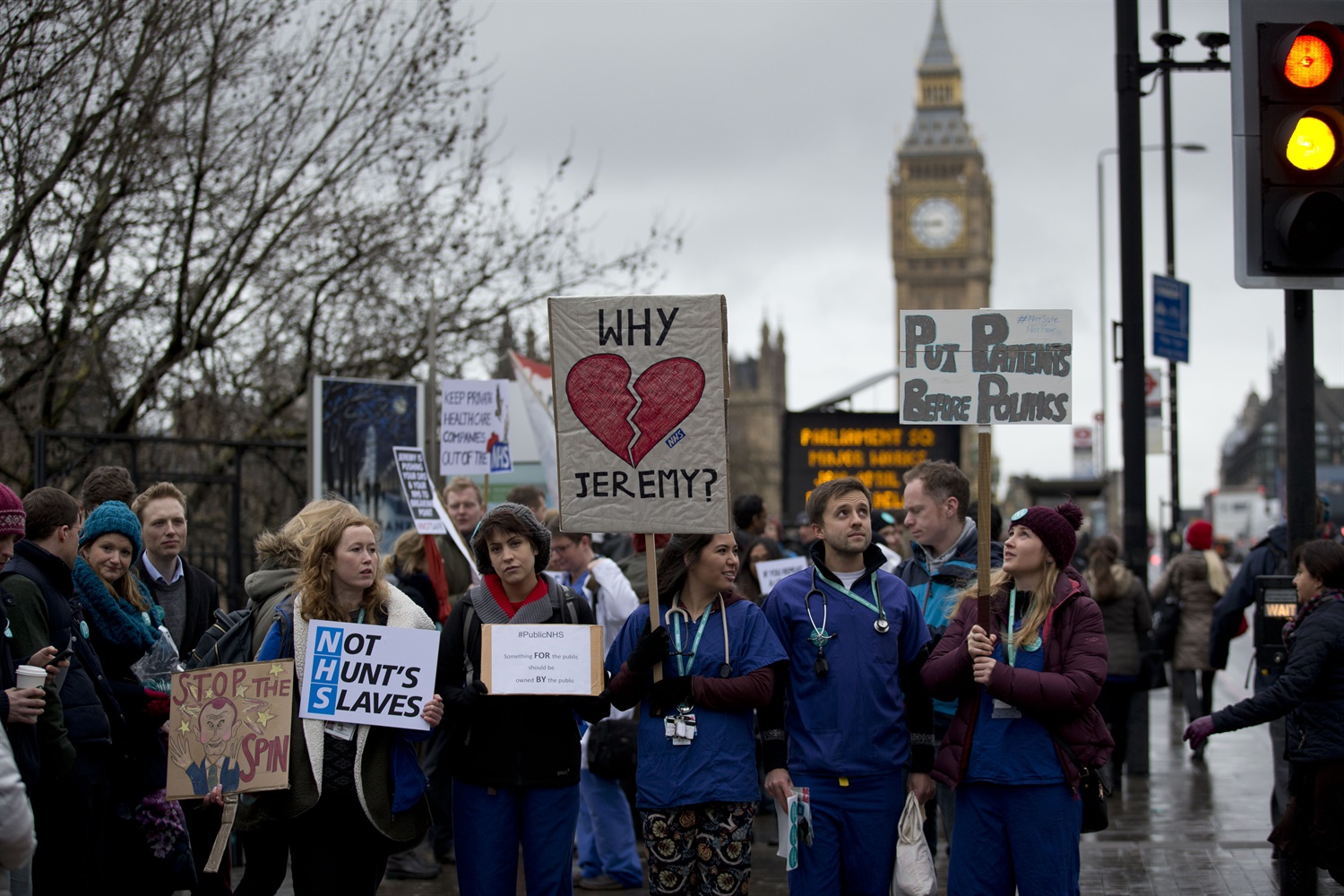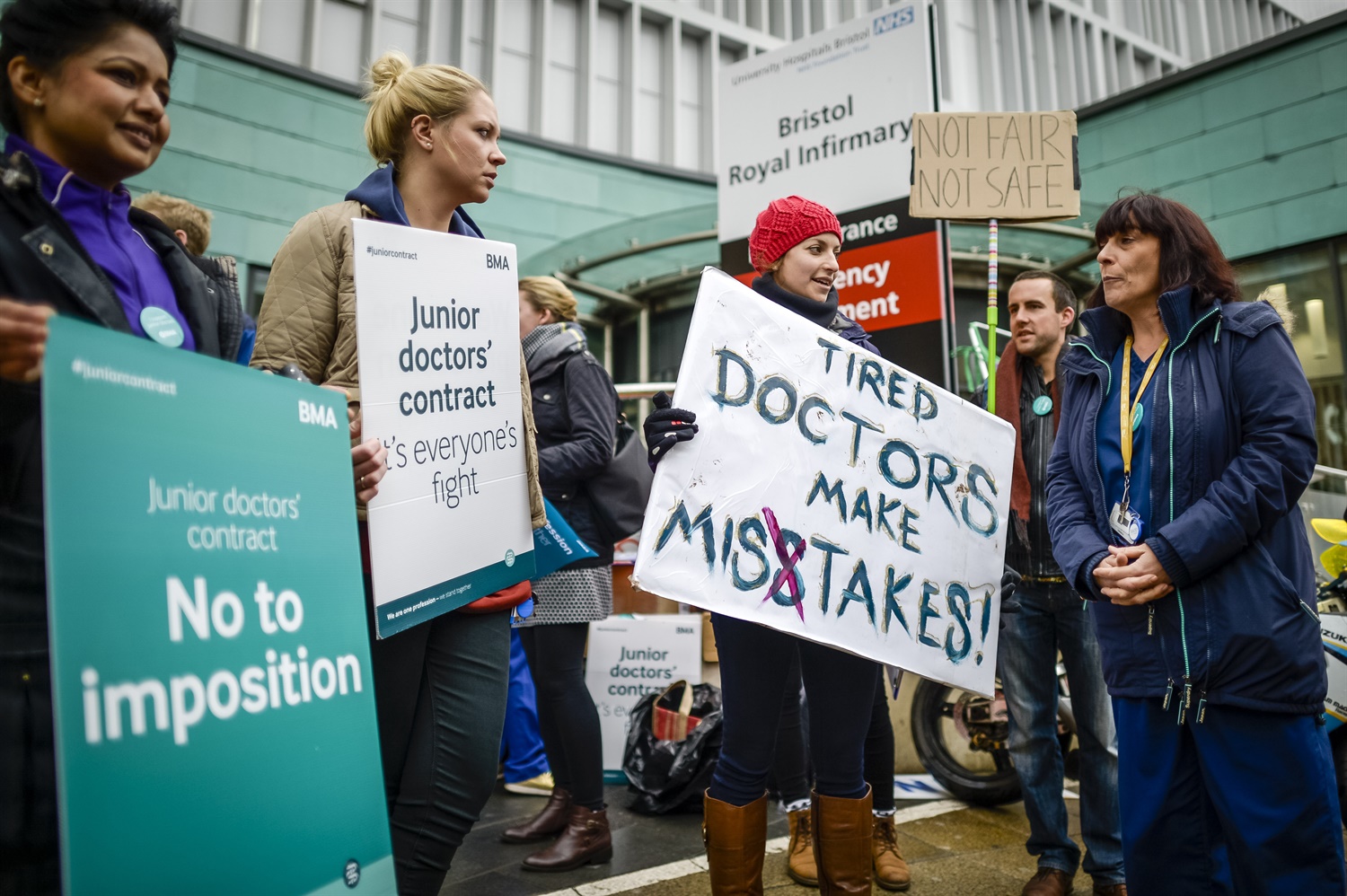09.03.16
Public support still strong for junior doctors as two-day strike action starts
Junior doctors have gone on strike for a third time in their controversial row with the government over proposed contract changes to pay and working hours.
The 48-hour strike, which started at 8:00am today, is the first industrial action being carried out following the health secretary’s decision to impose the contract last month.
NHS England said that the action, which means more than 5,000 non-urgent operations have been cancelled, means it will be a “difficult couple of days” for the NHS.
However, junior doctors – as they had during industrial action on 12 January and 10 February – will provide urgent and emergency care services.
Dr Johann Malawana, the BMA’s junior doctor leader, said: “We deeply regret disruption to patients, and have given trusts as much notice as possible to plan ahead, but the government has left junior doctors with no choice.
“Ministers have made it clear they intend to impose a contract that is unfair on junior doctors and could undermine the delivery of patient care in the long term.”
 Photo c. Matt Dunham, PA Wire
Photo c. Matt Dunham, PA Wire
As NHE reported last month, Jeremy Hunt announced that he would impose the contracts, which involve reduced rates for doctors working on weekends, after the two 24-hour strikes.
In response, the BMA announced new wave of strikes running for 48 hours from 8am today (9 March), 6 April and 26 April, with only emergency care being provided.
The BMA also announced that it is launching a judicial review of the decision to impose contracts because of the health secretary’s apparent failure to undertake an EIA (equality impact assessment) before making the decision.
However, a letter from the Government Legal Department, released ahead of the latest action, says the claim is ‘misconceived’.
Despite the disruption to NHS services, an Ipsos MORI poll has found that public support for the third round of junior doctors’ strikes is as high as it was for the first two strikes in January and February
The survey of 860 adults in England finds the same proportion (65%) supporting junior doctors strikes as for the previous round of action in February (66%) – as long as emergency care is provided. Opposition to junior doctors striking has decreased by five percentage points to 17% compared to last month.
Anna Quigley, head of health research at Ipsos MORI, said: “Today’s findings show that public support overall is resilient despite the ongoing nature of the junior doctors’ dispute over their contracts, and the fact that this round of strikes is set to last twice as long.”
Dr Anne Rainsberry, national incident director for NHS England, said the 48-hour strike will put “significantly more pressure on the NHS” and the “cumulative effect of these recurring strikes is likely to take a toll”.
“The safety and care of patients is always our number one priority and staff across the NHS are doing all they can to minimise the impact on patients of the action,” she said. “We will closely monitor events as they unfold to ensure plans to deal with the pressures are robust and people are ready to respond to any emerging difficulties.”
Last month, the Academy of Medical Royal Colleges’ Trainee Doctors’ Group (ATDG) urged the government to resume negotiations because an agreement on pay and working hours was “within reach”. This plea has, however, remained unanswered.
 Photo c. Ben Birchall, PA Wire
Photo c. Ben Birchall, PA Wire
Ahead of today’s action, Dr Mike Durkin, NHS national director for patient safety, outlined his belief that the new junior doctor contract is safe for patients.
A Department of Health spokeswoman also stated that the new contract, 90% of which was agreed with the BMA, and endorsed by senior NHS leaders, “is a very good deal for doctors and the NHS”.
“It will mean an average 13.5% basic pay rise with a cap on the number of long shifts worked to improve safety,” she said. “We urge junior doctors to look at the detail of the contract and the clear benefits it brings.”
Yesterday, the government announced that following recommendations from the NHS Pay Review Body (PRB) and the Doctors’ and Dentists’ pay review body it will apply a 1% pay increase to nurses, midwives, paramedics, healthcare assistants, consultants, junior doctors and GP and dental contractors from April. However, this has been described as “not good enough” from nursing and midwifery representatives.
(Top image c. Chris Radburn, PA Wire)